ENGSO Seminar 2017

European Non-Governmental Sports Organisation (ENGSO) and its youth section ENGSO Youth organised a Seminar day on June 9, as a prelude to the General Assembly, hosted by the French National Olympic Committee (CNOSF) in Paris.
EUSA Secretary general and the Communications and Projects Manager also attended the event and played an active role in the event.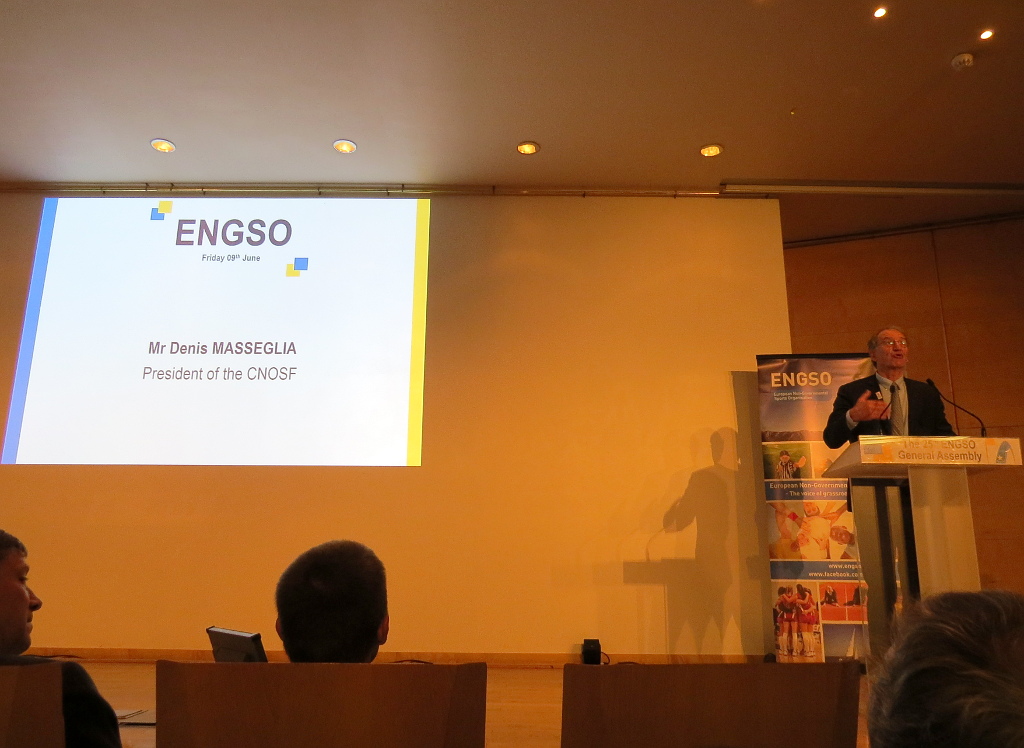
After the welcome speeches of Mr Denis Masseglia, the President of CNOSF and Mr Carlos Cardoso, President of ENGSO, the first part of the seminar kicked off, moderated by Julie Ravlo, focusing on the sport policy updates on the European level.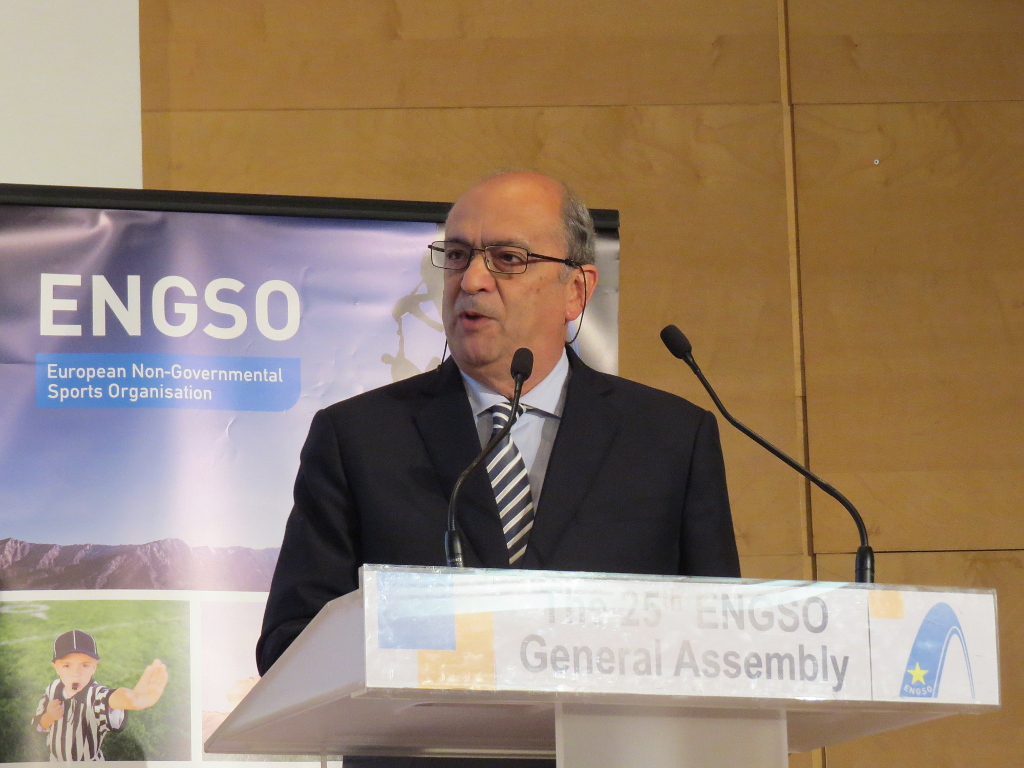
Firstly, Mr Yves Le Lostecque, the Head of the Sport Unit at the European Commission took the floor to give us some information on the newly published EU Work Plan on sport and their funding opportunities. 
He was followed by Mr Frederic Sanaur, the new Chair of the Governing Board the Enlarged Partial Agreement on Sport (EPAS) of the Council of Europe. He drew attention to the long-standing co-operation between the organisations, and gave an overview of the work of EPAS in general, as well as current projects.
Mr Mikkel Larsen and Mr Leigh Thompson presented the work priorities of the ENGOS EU Advisory Committee. Among the key objectives they mentioned the regular engagement with relevant stakeholders to promote ENGSO’s view on further reforms on Erasmus+.
After the plenary presentations, a panel discussion on the role of youth in shaping the legacy in sports was held. The impressive panel was diverse, having had representatives of UNESCO – Mr Alexander Schischlik, the European Commission – Mr Yves Le Lostecque, the International School Sport Federation & Education Commission of IOC – Mr Laurent Petrynka, ANESTAPS – Ms Orlane Francois, the European Youth Forum – Mr Andrea Casamenti, and ENGSO Youth – Ms Gerda Katchinka. The discussion was moderated by Mr Andrej Pisl from the European University Sports Association (EUSA), assisting in illustrating different examples on how the organisation involve youth to shape the legacy in sports. One of the examples was the Pink Paper, a set of recommendations written by the young participants of the European Youth Sport Forum earlier this year. Good practices were shared both by the youth representatives, as well as governing bodies and decision-makers of involving youth in legacy-building in sport on regional, national and international levels.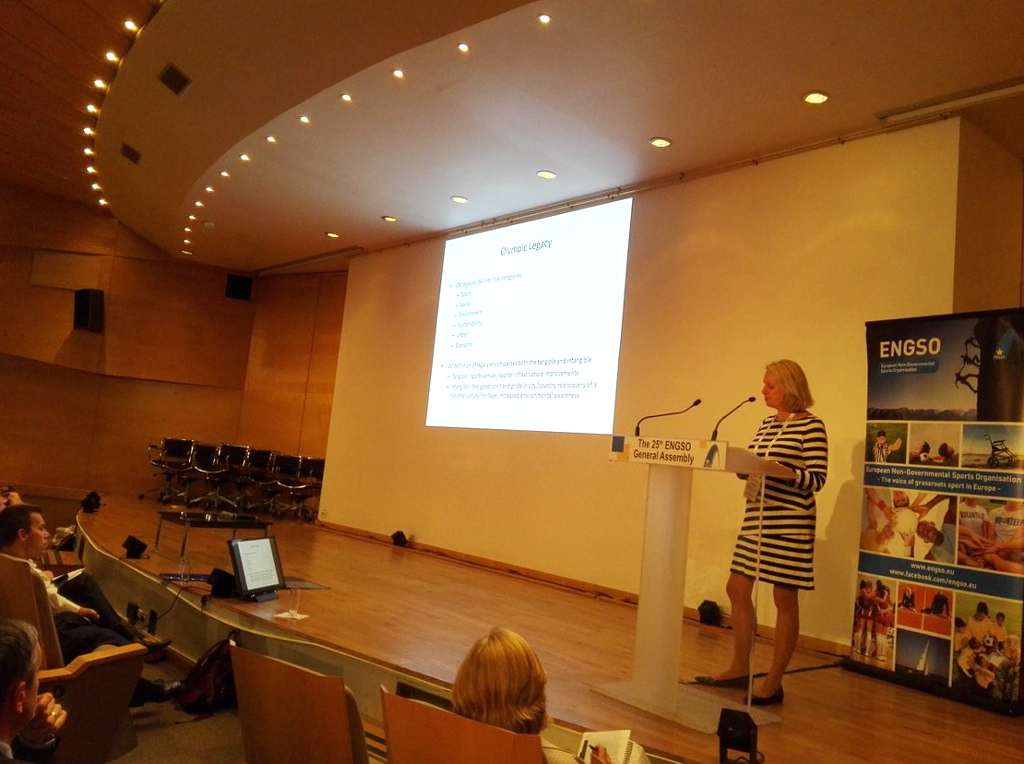
After the eventful morning, the programme continued in the afternoon, focusing the topics on the legacy of Olympic Games to grassroots sport, moderated by Sallie Barker. Ms Elizabeth McMahon’s excellent keynote speech highlighted the legacy of London 2012 Olympics to grassroots sport. As a Non-Executive Director of the Olympic Park Legacy Company/the London Legacy Development Corporation, she stressed the importance of legacy planning already in/before the bidding process. She recommended this approach to Paris 2024 as she believes that it played a huge part in the success of the bid. Ms McMahon shared some really impressive figures on the legacy, also affecting weekly activities of school children, and activating wider population in sports activities with initiatives like “Active People, Active Park” programme, providing free sporting opportunities. After the plenary, participants split into three workshops to discuss specific elements of Olympic legacy in details.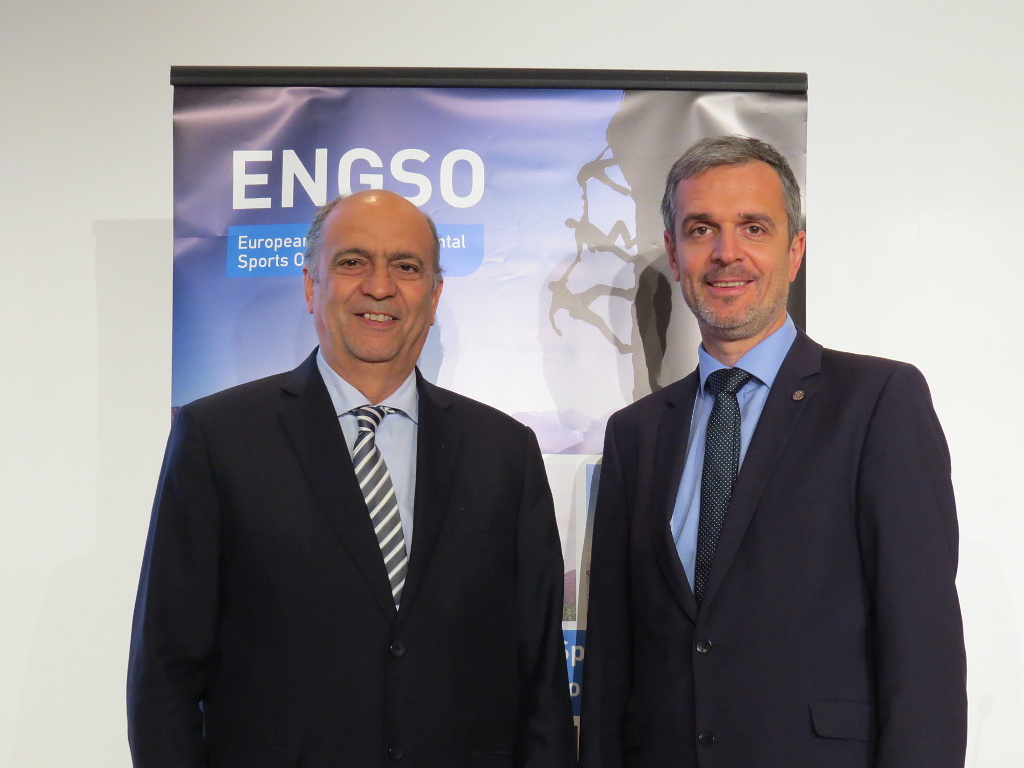
The first workshop was moderated by Ms Helenna Carlsson, looking at facilities and environment, seeking solutions on how the Olympics could be used to create sustainable facilities and protect the environment. The workshop featured an interesting presentation by Mr Jerome Lachaze, Head of Sustainability at the Paris 2024 Bidding Committee and Mr Matthieu Joubert, Project officer on sustainability and outdoor sports at CNOSF. A discussion followed, involving the audience and discussing the topic in more details.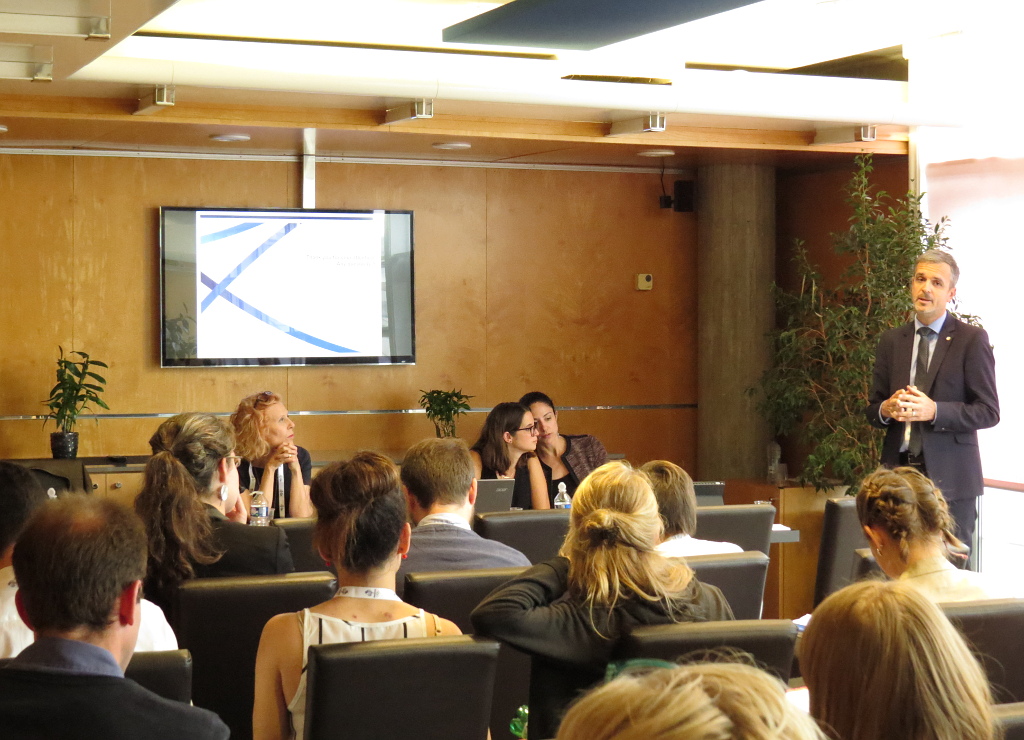
The second workshop, moderated by Ms Natasa Jankovic, focused on human resources - more specifically the encouragement of volunteering, youth participation and civil involvement. Ms Susanna Rahkamo, the Vice President of the Finnish Olympic Committee and Ms Clemence Coudert, Project officer on diversity of practices at CNOSF talked about their practices. In the discussion with the participants, different regional and national examples were shared by the participants from Turkey, Serbia, Germany and the UK, among others. EUSA Secretary General Mr Matjaz Pecovnik shared the experiences and volunteer opportunities in EUSA, with the trends and plans for the future.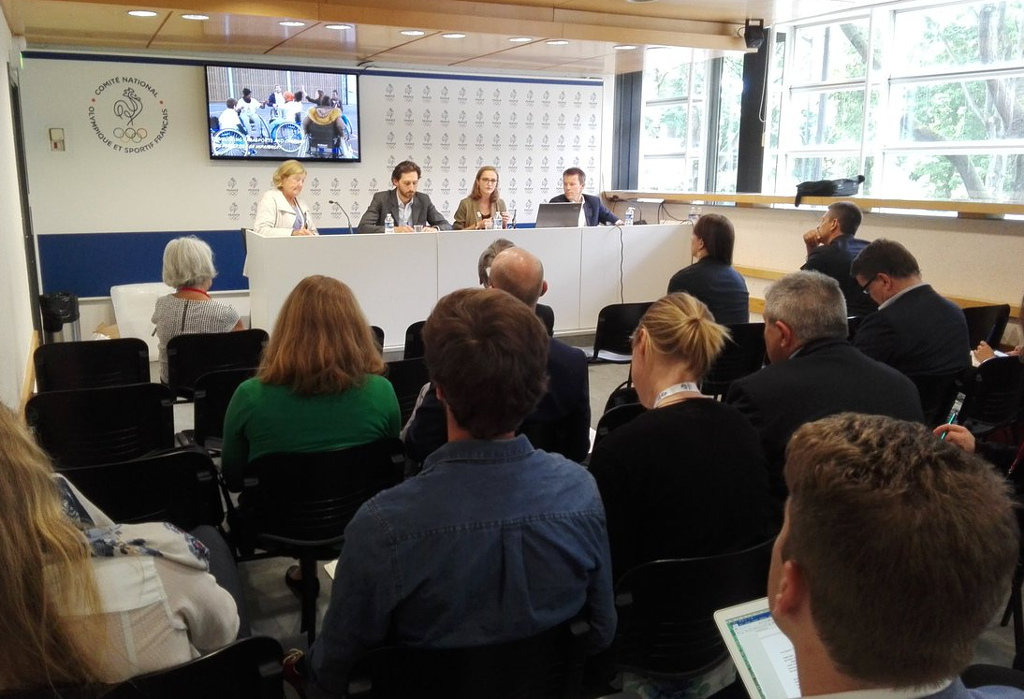
The third workshop was moderated by Sallie Barker and it concentrated on participation in grassroots sport and social inclusion and how the Olympics could be a catalyst to promote them. Mr John Petersson, President of the European Paralympic Committee (EPC) gave the participants some insights of their work, while Ms Fanny Donnarel, Project officer on impact and legacy of Paris 2024 and Mr Quentin Moreno, Regional Director of the “Sport dans la Ville” Association shared their examples with the participants as well. Then, as in the other two workshops, really interesting discussion unfolded among the participants.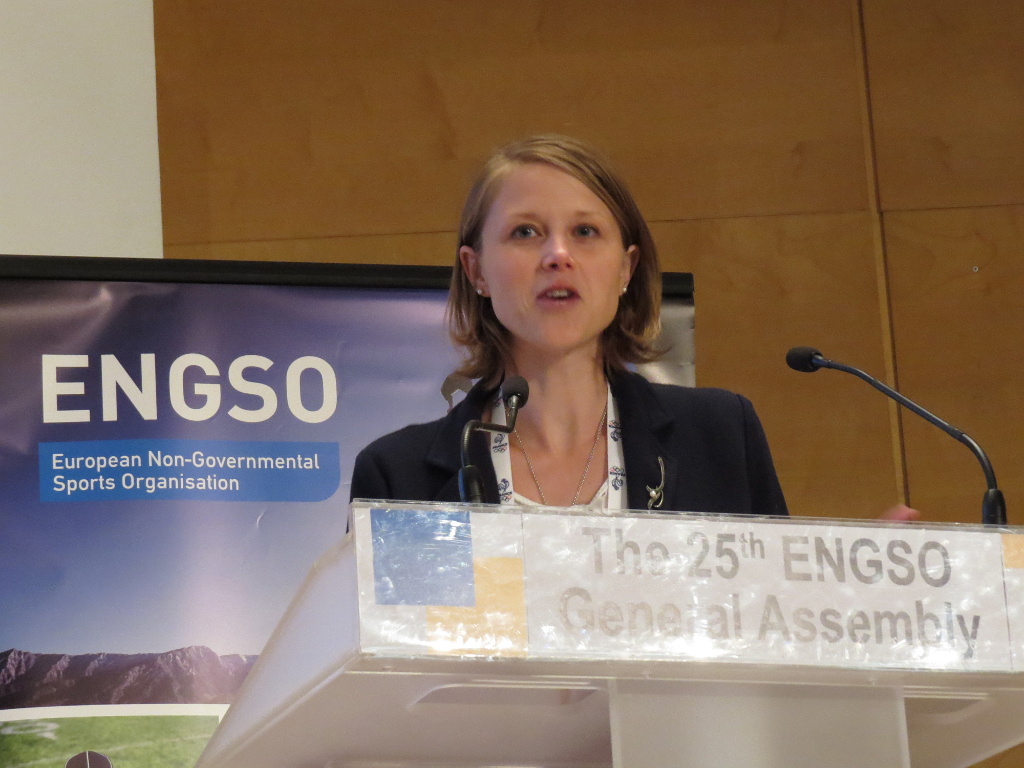
After exchanging thoughts in the workshops, the participants gathered for the closing plenary, which summarised key findings of each group, as they were summed up by the moderators and rapporteurs. Ms Orsolya Tolnay pointed out the importance in awareness-raising and education on the Sustainable Development Goals (SDGs) of the UN to help people understand why we need to live and practice sports in an environment-conscious way. Mr Michael Leyendecker, rapporteur of the second workshop talked about the importance of building up structures in advance to get people involved in major events and being educational platforms for the youth and that new technology could be helpful in keeping them involved. Ms Filipa Godinho summed up the key messages of the third workshop, including the importance of considering sport as a bridge for social inclusion and social awareness; of communicating appropriately and in an engaging way about Olympics while celebrating differences.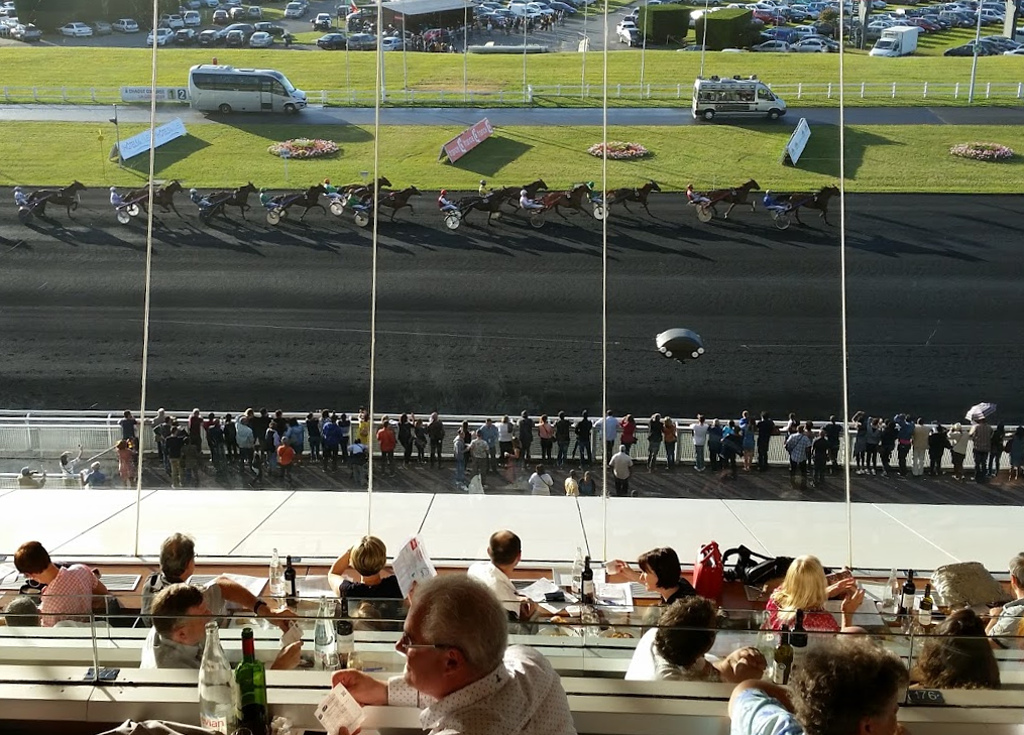
Concluding the day, over one hundred participants of the event enjoyed a unique gala dinner at the Hippodrome de Vincennes, being able also to visit the stables and watching horse races. ENGSO events in Paris continue on Saturday with the General Assemblies of ENGSO and ENGSO Youth.
For more information, please see www.engso.eu.
